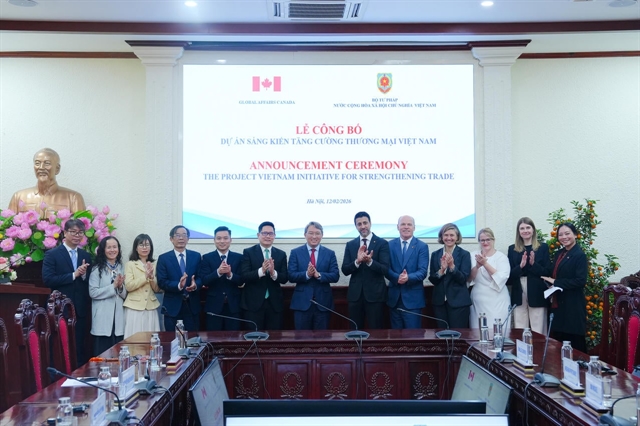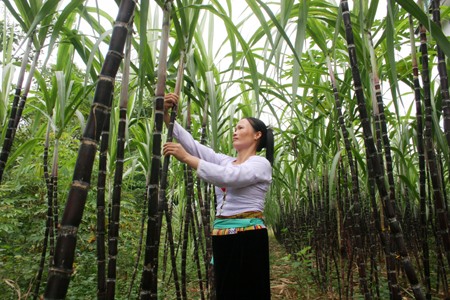 Society
Society

Poverty reduction programmes have had positive impacts on the living standards of ethnic minorities, but the challenge of sustaining the gains remains, experts say.
 |
| A woman tends to her sugarcane garden in Hòa Bình Province. Photo https://baotintuc.vn |
HÀ NỘI – Poverty reduction programmes have had positive impacts on the living standards of ethnic minorities, but the challenge of sustaining the gains remains, experts say.
Đỗ Văn Chiến, Minister and Chairman of the Committee for Ethnic Affairs, said the government’s social policies upgraded the socio-economic infrastructure in rural, mountainous and ethnic minority areas, gradually improving the lives of poor people.
A 2015 survey of nation’s 53 ethnic minority communities showed that the number of household receiving electricity from the national grid nearly reached 94 per cent. All communes have primary and secondary schools.
The poverty rate among poor households fell from 35 per cent in 2011 to 16.8 per cent by the end of 2015.
The Government adjusted its support for ethnic minority and mountainous areas, shifting its focus from families to communities and paying more attention to creating livelihoods so as to reduce reliance on aid, he said.
The provision of grants was replaced by provision of loans at preferential interest rates.
Ethnic minority-inhabited areas benefited from two national programmes, 135 and 30a, one on rural development and the other on sustainable poverty reduction.
The Government promulgated specific policies to support the poor’s access to land, credit, education, housing, clean water and health insurance. However, despite all these achievements, limitations persisted in efforts to eradicate hunger and alleviate poverty, Chiến said.
A lack of long-term support resulted in the fact that many support policies didn’t have the desired impact, he said.
Tráng A Thào, a resident of Xà Hồ Commune in Yên Bái Province, said his family had not been able to achieve high productivity even after receiving support to shift from planting cassava to maize.
Xa Viết Xuân, chairman of Tân Minh, a disadvantaged commune in northern mountainous province of Hòa Binh, said such policies like fertiliser and seedling assistance can only help local residents in the short term. Since they cannot accumulate enough after each crop, they don’t have the resources to increase or even maintain production.
Sơn Phước Ngoan, former chairman of the Committee for Ethnic Affairs, said insufficient funding led to ineffective poverty reduction.
"Ethnic minorities want to buy a cow but they are only able to buy a part of the cow. So they can’t escape poverty", he said.
This view was confirmed by Hoàng Thị Dung of Yên Bái Province’s Văn Yên District.
"We want to get rid of poverty but we don’t have the capital to expand our production," she said.
It costs between VNĐ15-20 million (US$660-880) to buy a buffalo. Of these, VNĐ5 million ($220) is given by the government but poor people like her couldn’t afford to raise the remaining funds on their own, Dung said.
Nông Văn Tông, who heads the Labour, Invalids and Social Affairs Office in Yên Bái’s Bảo Lạc District, said it was difficult to promote sustainable development with policies that don’t focus on key areas.
Under the 30a programme, farmers received a one-time support. So, if a farmer received a cow or seedlings this year, he would not get any assistance the following year, he said.
"Encouraging ethnic minorities to proactively escape poverty and avoid relying on support from the State and community is an approach in the right direction, but there is no alternative to raising capital allocation for extremely disadvantaged areas and reviewing the way people get support," Chiến said. -- VNS




